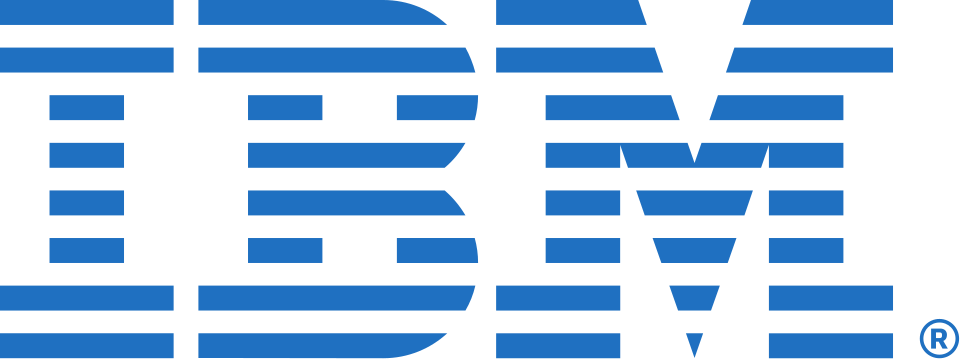Program Overview
The Stevens Institute of Technology Master of Engineering in Engineering Management prepares engineers for leadership roles by combining technical expertise with business management principles. Through an innovative curriculum that bridges engineering and business, you’ll develop analytical and social intelligence to manage projects effectively. Customize your learning with core coursework in management, data science and engineering analysis, and tailor electives to your interests. With our new ASAP application, you can bypass the traditional application process and secure your spot in the program by successfully completing two trial courses.
Key Skills Developed:
Term Start Date
Fall 2026: September 1, 2026
Overview
- 30 Credit Hours
- 10 Courses
- 100% Online
- 2 Years or Less Completion Time*
- Two application options (standard and ASAP)
*Total time to complete the program may vary based on the number of credits taken each semester.
Advanced
Techniques
Assemble
Teams
Analyze
Data
Build
Models
By the Numbers
No. 6
In the Nation
Recognized as the No. 6 Best Online Master's in Industrial Engineering Program in the country by U.S. News & World Report (2025).
No. 15
For Best Value
Ranks No. 15 among "Best Value Colleges" By Payscale (2024).
Top 20
For Best Career Placement
Ranked among the top private schools for best career placement by The Princeton Review (2024).
100%
Employment
Three months after graduation, 100% of MEM graduates in the Class of 2023 accepted job offers.¹
No. 1
In N.J.
Named the No. 1 Online Master's in Engineering Program at a N.J. school (U.S. News & World Report, 2022).
Career Outlook
According to 2025 data from the U.S. Bureau of Labor Statistics (BLS), there are 210,200 architectural and engineering managers and 230,100 industrial production managers employed across the U.S. The BLS projects about 15,000 and 17,100 annual job openings in these fields, respectively, over the next decade.
The states with the highest employment rates for engineering managers include California, Texas, Michigan, Pennsylvania and Illinois. Engineering manager salaries vary according to location, but many upper-level roles are well into the six figures. The BLS lists the median annual wage for architectural and engineering managers at $167,740.
Mastering Engineering Leadership Skills
Engineering Economics and Cost Analysis
You'll learn to:
- Apply economic principles to engineering project evaluation and selection
- Perform cost-benefit analysis and risk assessment for technical investments
- Utilize financial modeling techniques for engineering decision-making
Project Management and Systems Engineering
You'll learn to:
- Lead cross-functional engineering teams through complex project lifecycles
- Apply systems engineering principles to optimize project outcomes
- Manage project scope, timeline, and resources effectively
Operations Research and Data Analytics
You'll learn to:
- Apply mathematical modeling and optimization techniques to engineering problems
- Utilize data analytics tools for process improvement and decision support
- Implement statistical methods for quality control and performance measurement
Leadership and Organizational Management
You'll learn to:
- Develop leadership strategies for engineering teams and technical organizations
- Apply change management principles in engineering contexts
- Foster innovation and continuous improvement in technical environments
Strategic Engineering Management
You'll learn to:
- Develop strategic plans that integrate engineering capabilities with business objectives
- Evaluate technology trends and their impact on organizational strategy
- Make informed decisions about technology investments and resource allocation
Prospective Occupations for Online MEM Graduates
Earning an online MEM prepares you for career paths in management-level roles across industries. Explore top MEM jobs for recent graduates.
Prospective Occupations for Online MEM Graduates
| Job Title | Median or Average Annual Earnings |
|---|---|
Architectural and Engineering Manager | $167,740 |
Industrial Production Manager | $121,440 |
Materials Engineer | $108,310 |
Electrical Engineer | $111,910 |
Industrial Engineer | $101,140 |
Project Management Specialist | $100,750 |
Source: U.S. Bureau of Labor Statistics, 2025.
Stevens Alumni Drive Innovation at Top Companies
Our graduates join leading organizations across technology, finance, healthcare, and consulting






Why Choose an Online MEM from Stevens?
At Stevens, you'll receive a cutting-edge engineering management education that seamlessly integrates technical proficiency with business acumen. Our comprehensive curriculum bridges the gap between engineering and management, equipping you with the skills to lead in a dynamic engineering environment.
Customize your learning path with electives that align with your career aspirations, ensuring you gain the knowledge and confidence to succeed in leadership roles. With our new ASAP application, you can bypass the standard application process and start learning immediately by completing two introductory courses.
Online MEM Program Course Structure
The Online MEM program consists of 30 credit hours across 10 courses, all delivered 100% online, with the first two courses delivered asynchronously. Coursework is built on three pillars: management for engineers, data science and management, and engineering modeling and risk analysis.
TERM 1
TERM 2
TERM 3
To meet the interests and career goals of students, the following courses are available as recommended electives during Terms 4 and 5. Alternately, students may take up to four courses that focus on a particular area of their choice including Construction Management, Mechanical Engineering, Electrical Engineering, and Systems & Software Engineering upon reviewing the specific courses with the faculty advisor or Program Director.*
TERM 4**
MANAGERIAL ANALYTICS ELECTIVE
SUPPLY CHAIN AND LOGISTICS MANAGEMENT ELECTIVE
TERM 5**
MANAGERIAL ANALYTICS ELECTIVE
SUPPLY CHAIN AND LOGISTICS MANAGEMENT ELECTIVE
*Applicants are not required to select a program concentration during the application process.
**Students lacking sufficient statistics coursework in their academic background will be required to take Probability and Statistics for Systems Engineering in lieu of an elective course in term 4 or term 5. Once enrolled, students will work with a student support coach to determine which courses to take.
Student Testimonial Spotlight
"The MEM program gave me the perfect blend of technical skills and leadership capabilities. I was promoted to Engineering Manager within six months of graduation."- Sarah Chen '23
Meet the Faculty
The School of Systems and Enterprises (SSE) faculty is made up of experienced educators and active researchers who offer industry insights to Engineering Management students.
Choose Your Application Option
Complete the Standard application and submit the following for review:
- Bachelor’s degree
- Two letters of recommendation
- Statement of purpose
- Academic transcripts
- Résumé
Enroll in two eight-week asynchronous courses and gain full admission to the program by earning a grade of “B” or better in each.
- Bachelor’s degree required
- No letters of recommendation required
Key Dates & Deadlines
Plan your application for the upcoming Spring 2026 term.
| Term | Early Submit | Priority Submit | Final Submit | Start of Classes |
|---|---|---|---|---|
| Fall 2026 | July 3, 2026 Deposit Waiver* and Application Fee Waiver Available. | July 31, 2026 Application Fee Waiver Available and Early Application Review. | August 21, 2026 | September 1, 2026 |
*Applicants who apply by the early submit deadline and are admitted may be eligible for a $250 deposit waiver. Other conditions may apply.
Tuition & Financial Aid
Per Credit (Standard)
Per Credit (Async)*
Application Fee
Enrollment Deposit
New for Spring & Summer 2026: Up to $13,120 off Tuition Through Grants and Scholarships
At Stevens, we’re committed to reducing the financial barriers to graduate education. That’s why we offer grant and scholarship programs designed to help you achieve your goals.
*The $875/credit rate applies to the first two asynchronous courses in the program.
Grants & Scholarships
$3,120 in tuition support for the first two asynchronous courses.
$3,120 in tuition support for the first two asynchronous courses.
Eligible students may qualify for scholarship support based on academic merit. Contact your enrollment advisor to learn more.
On-Demand Content
At Stevens, we host a variety of events for prospective and current students covering topics such as application strategy, program information, the student experience and our online platform. Our on-demand content is instantly available, so you can watch at your convenience.



